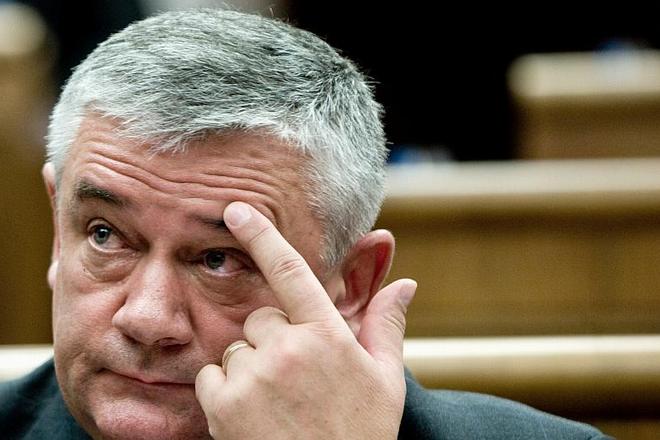THE ASSETS of Slovak politicians remain murky despite a law which obliges all public officials to declare their income and list their assets every year. The law doesn’t require any specific information to be given so the public is normally left with a list of unspecified houses, motor vehicles, farmland and bank account savings which reveal little about each official’s assets.
“The reason for publishing the assets declarations is [to allow] comparison of the growth of a politician’s assets with his declared income, and thus to find out about potentially illegally acquired assets and to investigate their origins,” Ivan Rončák from Transparency International Slovensko told The Slovak Spectator.
According to Rasťo Diovčoš from the Fair-Play Alliance, another political watchdog, the assets declarations should serve to inform not only the parliamentary committee on incompatibility of functions but also the general public.
“The committee is satisfied not only with these assets declarations which don’t allow it to carry out controls effectively, but with [the fact that it] provides to the public only a list that tells them nothing,” Diovčoš told The Slovak Spectator.
“This is in conflict not only with the law but also with common sense,” he added.
A house, a car, a plane
For instance Ján Slota, the leader of one of the junior coalition parties, the Slovak National Party (SNS), whose luxurious lifestyle has been subject to criticism recently by the Slovak media and watchdogs after he was photographed flying a small private aeroplane and driving a luxurious Mercedes-Benz SLR McLaren 722 Edition costing more than half a million euros, has declared annual income of Sk726,000 (about €24,000) from his activities as a public official and another Sk128,250 (€4,200) as other income. According to his assets declaration, he is not involved in any business activities and, apart from being an MP, serves also as a deputy in the regional parliament of the Žilina Self-Governing Region (VÚC). All he owns, according to his current assets declaration, is an unspecified flat, a garden with a garden hut, two cars, a motorbike, a Diamond DA 42 aeroplane and savings.
The aeroplane and one of the cars are new on the list, as compared to last year. According to Jana Benková, the SNS spokesperson, the car is a Lada Niva which Slota bought for about €8,000. She did not specify the purchase price of the plane, which she said Slota had bought crash-damaged, according to a report in the Hospodárske Noviny daily.
Another politician who in the past has been less than forthcoming about how he acquired some of his property is Movement for a Democratic Slovakia (HZDS) leader Vladimír Mečiar. His assets declaration contains 120 items, among them two flats, eight houses, 57 lots of arable land, nine gardens, 14 built-up areas and courtyards and two garages. Since last year Mečiar had acquired four houses, but he did not specify how, the Sme daily reported.
“[The four houses] are just buildings of raw bricks more than 100 years old, without water, without electricity, without a chimney, all of them without windows and doors, with walls fallen out and damaged roofs,” was how Mečiar described his new properties to the TASR newswire, adding that he bought them for a symbolic price because he wanted peace around his weekend house in Dolná Poruba.
More info wanted
“Since the law was passed politicians have found ways to avoid public monitoring and are united on the point that they should never be required nor should accept any improvement,” Diovčoš said, commenting on the chances of any change.
Publishing the declarations on the websites of the parliament, the VÚCs or the universities is legitimate, since they are official websites of these institutions accessible to everyone, according to Rončák.
“What is worse is the scope of the people who fall under this obligation, as it doesn’t include mayors and local politicians,” Rončák said, adding that experience shows that it is such officeholders in particular who frequently become the subjects of corruption attempts and that therefore the public should be able to observe any growth in their assets.
Transparency International Slovensko said it would welcome more data that would help identify the interests of public officials, such as their membership in different business and non-business institutions, the interests of their relatives, or more exact data about the volume of their assets.
“Currently it’s sufficient to state that a public official owns real estate property, but he or she is not obliged to state its value,” Rončák said. “At the same time, a family house can be worth €40,000 but also €400,000. For instance, if a deputy carries out a costly reconstruction of his or her house, nobody will know about it.”
The assets declarations should contain specific information which would allow the application of the law – and thus to see whether officials were acting in conflict with the public interest, Diovčoš said.
The Fair-Play Alliance created a space on its www.politikaopen.sk website for those politicians who want to disclose to the public essential information about their assets and interests. Dozens of politicians have already used this option.



 Ján Slota (source: Sme - V. Šimíček)
Ján Slota (source: Sme - V. Šimíček)